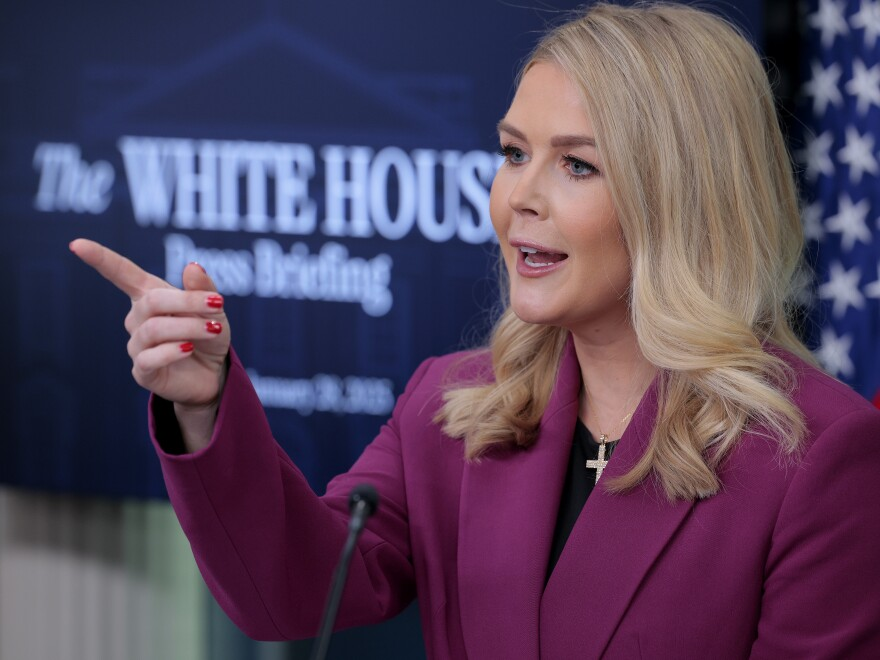The Trump administration has found itself embroiled in a contentious battle with the Associated Press (AP) over the renaming of the Gulf of Mexico to the Gulf of America. Press Secretary Karoline Leavitt recently took aim at the AP during a press briefing, accusing the organization of spreading misinformation by refusing to adopt the new name. The AP, however, has stood its ground, citing historical precedent and global recognition as reasons for its decision.
The conflict began after President Trump signed an executive order officially changing the name of the Gulf of Mexico within the United States. While many U.S.-based organizations and mapping services quickly adopted the new name, the AP released a statement declaring it would continue to use “Gulf of Mexico.” The news organization explained that its decision was based on the need for clarity and consistency in global reporting.

The White House responded by excluding AP reporters from key events, including a meeting with Elon Musk and the swearing-in of Tulsi Gabbard as Director of National Intelligence. These actions have drawn criticism from journalists and free speech advocates, who argue that the administration is retaliating against the AP for its editorial independence.
Leavitt defended the administration’s actions, stating that access to the president is a privilege and that the media has a responsibility to report accurately. She also criticized journalists who she believes are spreading lies, emphasizing the importance of using the correct terminology. Despite the pressure, the AP has remained steadfast, with executive editor Julie Pace asserting that the organization’s commitment to factual reporting will not waver.
The dispute has reignited concerns about the Trump administration’s relationship with the press. During his first term, Trump frequently clashed with media outlets, and it appears that his second term will be no different. As the debate over the “Gulf of America” continues, it raises important questions about press freedom and the role of the media in a democratic society.


